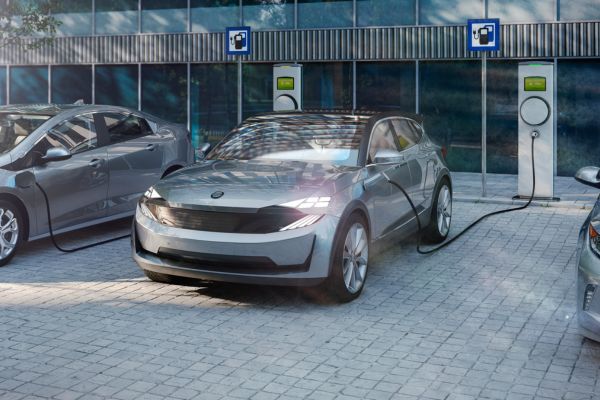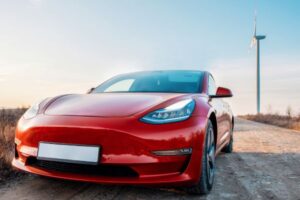The automotive world is undergoing a seismic shift towards electrification, with electric vehicles (EVs) rapidly gaining traction as the sustainable future of transportation. Within this electrified landscape, electric sports cars have emerged as the epitome of performance and innovation, captivating enthusiasts with their blistering acceleration and eco-conscious engineering. As the demand for electric sports cars continues to rise, so does the need for revolutionary charging solutions that align with the high-performance ethos of these exhilarating machines. In this quest for an efficient and seamless charging experience, wireless charging technology has emerged as a potential game-changer, promising to reshape the future of electric sports cars.
Wireless charging technology operates on the principle of inductive power transfer, offering a cable-free and intuitive charging process for electric vehicles. The allure of wireless charging lies in its promise to eliminate the need for physical connectors and plugs, streamlining the charging process and enhancing user convenience. The seamless integration of charging pads into parking spots, garages, and even highways could enable electric sports cars to recharge their batteries during moments of idle time, offering a continuous and uninterrupted driving experience.
While the concept of wireless charging holds immense potential, its practical implementation for high-performance electric sports cars raises intriguing questions. Efficiency, power challenges, driving range impact, and integration with autonomous technology are among the key factors that will determine whether wireless charging technology truly represents the future of high-performance electric mobility.
In this comprehensive article, we delve into the intricacies of wireless charging technology and its potential to revolutionize electric sports cars. We examine the advantages and challenges of wireless charging, exploring its impact on driving range, battery management, and the driving experience. Moreover, we analyze the integration of wireless charging with autonomous technology, envisioning a future where electric sports cars seamlessly navigate to charging pads and recharge with minimal human intervention. As the automotive industry sets its sights on a sustainable and electrifying future, the role of wireless charging technology in the realm of electric sports cars remains a tantalizing possibility that could redefine the driving experience for performance enthusiasts and environmentally conscious drivers alike.
Understanding Wireless Charging Technology
Wireless charging technology operates on the principle of inductive power transfer, wherein electrical energy is transmitted between two coils – one embedded in the charging pad, and the other integrated into the electric sports car’s battery system. When the vehicle is positioned over the charging pad, the electromagnetic field induces an alternating current in the car’s coil, converting it back into direct current to charge the battery. The absence of physical cables simplifies the charging process, eliminating the need to plug in the vehicle, and promising a more seamless and user-friendly experience for electric sports car owners.
Wireless charging technology offers several advantages that align with the needs of high-performance electric sports cars. The absence of physical connectors and cables reduces wear and tear on the vehicle’s charging port, ensuring longevity and reliability. Additionally, wireless charging eliminates the risk of accidental disconnections, enhancing the safety and efficiency of the charging process. Moreover, wireless charging pads can be discreetly installed into various surfaces, such as garage floors or parking lots, seamlessly integrating into the urban landscape and catering to the needs of electric sports car owners.
Overcoming Efficiency and Power Challenges
While wireless charging technology holds great promise, it faces efficiency and power challenges that must be addressed to become a viable solution for electric sports cars. Inductive charging can be less efficient compared to traditional plug-in charging methods, as a portion of energy is lost during the wireless transfer process. This inefficiency can lead to longer charging times, impacting the convenience and practicality of wireless charging for high-performance vehicles that demand quick turnaround times.
To address these challenges, advancements in wireless charging technology are focused on improving the overall efficiency of power transfer. High-power charging capabilities are being developed to deliver more electricity in a shorter amount of time, reducing the charging time for electric sports cars. Additionally, innovative charging pad designs and better coil alignment systems are being explored to optimize power transfer and minimize energy losses. As these technological advancements mature, wireless charging technology has the potential to become a compelling solution for electric sports cars, striking the right balance between efficiency, power, and convenience.
Driving Range and Battery Management
Driving range is a critical factor for electric sports car owners, as these vehicles are designed for exhilarating performance and long-distance driving. One concern surrounding wireless charging technology is its potential impact on the driving range. As wireless charging may be less efficient compared to wired charging, it could result in increased energy consumption, reducing the car’s overall driving range.
However, wireless charging technology also presents opportunities for intelligent battery management. With wireless charging pads discreetly integrated into parking spots or highways, electric sports cars could potentially recharge their batteries during moments of idle time, such as waiting at traffic lights or parking in a garage. This continuous charging approach could compensate for any potential reduction in driving range caused by wireless charging, ensuring that the car is ready for high-performance driving whenever needed. Additionally, advanced battery management systems could be integrated into electric sports cars to optimize charging patterns and ensure that the battery is charged at the most efficient times and rates, further enhancing overall driving range and performance.
Integration with Autonomous Parking
Wireless charging technology’s potential integration with autonomous parking further enhances its appeal for electric sports cars. As autonomous driving technology evolves, self-parking capabilities could enable electric sports cars to position themselves accurately over wireless charging pads without human intervention. This seamless integration would elevate the charging experience, as drivers could simply exit the vehicle, and the car would autonomously navigate to the charging pad, initiate the charging process, and return to its parking position when fully charged.
The integration of wireless charging with autonomous parking offers a glimpse into the future of convenience and automation, further elevating the appeal of electric sports cars for consumers seeking a high-tech and hassle-free driving experience. As electric sports cars continue to push the boundaries of performance and technology, the convergence of wireless charging and autonomous driving stands as a compelling vision for the future of high-performance electric mobility.
The Future of Electric Sports Cars and Charging Solutions
As the automotive industry accelerates towards a sustainable and electrifying future, wireless charging technology emerges as a prominent player in the evolution of electric sports cars. The promise of seamless and cable-free charging experiences resonates with the values of convenience and efficiency that high-performance drivers seek. While challenges such as efficiency and power concerns must be addressed, ongoing research and technological advancements hold great promise for wireless charging technology’s viability.
The future of electric sports cars and charging solutions is multi-faceted, with both wireless and wired charging technologies complementing each other. While traditional plug-in charging remains a reliable and efficient option for many electric sports car owners, wireless charging technology caters to those seeking an innovative and seamless charging experience. As electric vehicle infrastructure continues to expand and technology matures, wireless charging has the potential to become an integral part of the electric sports car ecosystem, representing a future where high-performance motoring and sustainable electric mobility converge into an electrifying and intelligent driving experience.
Conclusion
The future of electric sports cars is undeniably electrifying, as advancements in technology and innovation continue to push the boundaries of performance, sustainability, and user experience. In this quest for a more efficient and seamless charging process, wireless charging technology emerges as a compelling contender. The allure of cable-free and user-friendly charging experiences resonates with the values of convenience and efficiency that electric sports car owners seek. However, while the potential of wireless charging technology is promising, it faces challenges that must be addressed to solidify its position as the future of high-performance electric mobility.
Efficiency and power transfer remain critical areas of focus for wireless charging technology. As electric sports cars demand quick turnaround times and optimal charging solutions, improving the overall efficiency of power transfer becomes paramount. Technological advancements in high-power charging capabilities, innovative charging pad designs, and coil alignment systems are essential to minimize energy losses and enhance the charging experience for electric sports cars.
Additionally, the impact of wireless charging on the driving range of electric sports cars must be carefully considered. While continuous and wireless charging during idle moments may offset potential range reduction, optimizing battery management systems becomes crucial to ensure that electric sports cars maintain their long-distance capabilities and exhilarating performance.
Furthermore, the integration of wireless charging technology with autonomous parking offers a tantalizing vision of convenience and automation. As autonomous driving technology evolves, self-parking capabilities could seamlessly align electric sports cars with charging pads, creating a harmonious synergy of AI-driven intelligence and efficient charging. This integration showcases the potential for wireless charging to enhance the user experience and embrace a futuristic vision of electric sports cars seamlessly navigating the urban landscape.
In conclusion, wireless charging technology presents an exciting prospect for the future of electric sports cars. Its promise of cable-free convenience and seamless integration with autonomous technology aligns with the values of high-performance motoring and sustainable electric mobility. While challenges in efficiency, power, and driving range must be surmounted, ongoing research, technological advancements, and industry collaboration hold great promise for the viability of wireless charging in the realm of electric sports cars.
As the automotive industry accelerates towards a more sustainable and electrified future, the role of wireless charging technology is poised to be a pivotal factor in reshaping the driving experience for electric sports car enthusiasts. Whether it becomes the definitive solution or complements existing charging methods, wireless charging exemplifies the spirit of innovation driving the electric mobility revolution. With a shared vision of sustainability, performance, and convenience, the automotive world moves forward, determined to deliver a future where electric sports cars reign supreme on the road and in the hearts of performance enthusiasts worldwide.



